This long, glorious summer continued for most of the month, although there were inauspicious thunder storms towards the end, which reminded us that autumn is around the corner!!
In the meantime, the English countryside is at its harvest-like best, with ploughed fields and spacey landscapes.
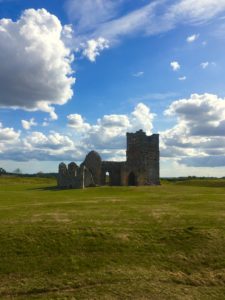
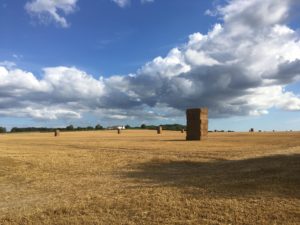
I spent a week in Somerset and really just hung around on the veranda – cooking and reading – since it was so hot. Again, some nice sunsets over the Severn estuary.
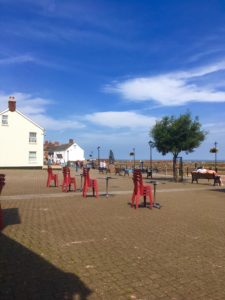

A real Somerset pub as well, selling real Somerset cider – quite rare to find these days.

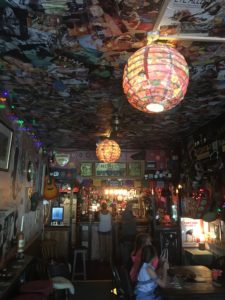
I went up to London on the 12thfor the unveiling of the new gravestone for William Blake. He is buried in Bunhill Fields in the City, a dissenters’ cemetery, and one closed many years ago. Since 1927, there has been a stone in the cemetery to him and his wife, but not actually on the site he was buried. The site was hit by a bomb in the war and just repositioned for convenience.
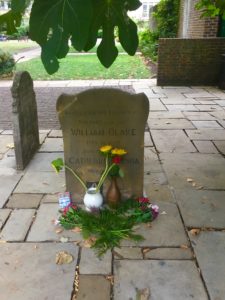
So, it has taken some time to track down the actual site, which was finally identified 12 years ago.

It turns out that Blake is buried with seven others, as was the custom in 1827 when he died, and that he was the fourth one down. Anyway, a new stone was commissioned by the Blake Society of St. James and duly cut by the stone cutter Lida Cardozo.
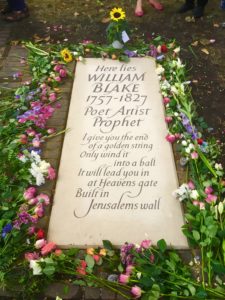
There was much celebration, with singing and poetry – a thousand or so people attended. One piece sung was a new composition by an Australian composer Chris Williams: ‘I give you the end of a golden string, Only wind it into a ball. It will lead you at Heavens gate, Built in Jerusalems wall’. I made an impromptu recording:
Audio Player
Of course, the actual Jerusalem poem from Blake’s prophesy Milton was also sung by the attendees:
Audio Player
I did not catch the first lines, so here are the complete words.
And did those feet in ancient time
Walk upon Englands mountains green:
And was the holy Lamb of God,
On Englands pleasant pastures seen!
And did the Countenance Divine,
Shine forth upon our clouded hills?
And was Jerusalem builded here,
Among these dark Satanic Mills?
Bring me my Bow of burning gold:
Bring me my arrows of desire:
Bring me my Spear: O clouds unfold!
Bring me my Chariot of fire!
I will not cease from Mental Fight,
Nor shall my sword sleep in my hand:
Till we have built Jerusalem,
In Englands green & pleasant Land
Of course, these words of this poem, which is much loved by the British and sung almost as a national anthem against the music of Parry, were written when Blake was desperate – ‘Albion is sick’, he declared. And, still so, it seems….
Then away to Cyprus – a beautiful island:
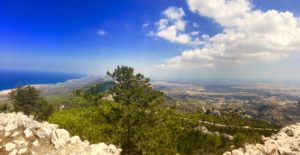
Lots of nice food and company with my ex-student and her family.

Cyprus is a land of castles and churches.
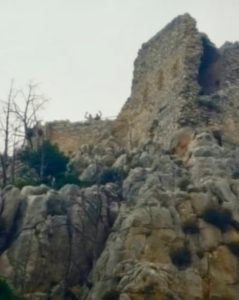
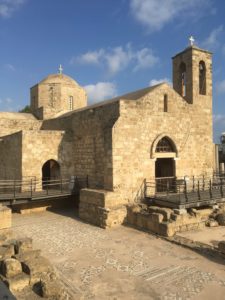
The latter have some of the finest Byzantine religious art in the world – 11thto 15thCentury. Each of these churches is a world heritage site!
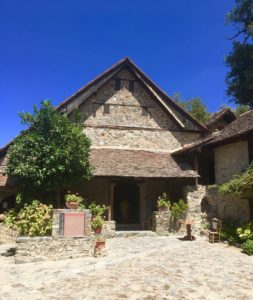
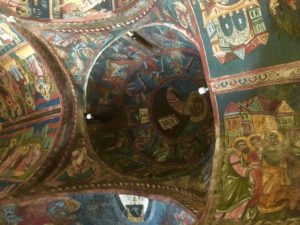
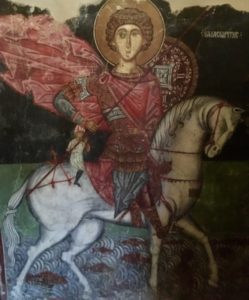
Then, Roman archeology as well with, once again, world famous sites and finds – like the mosaics going back to the 4thcentury BC.
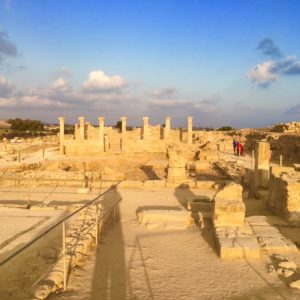
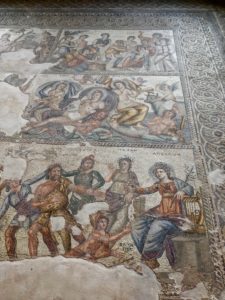
I also spend two nights in a swish hotel:
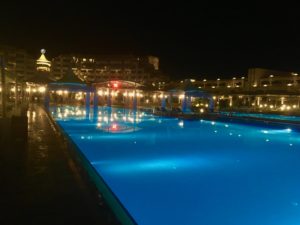
Lots of fun.
The Proms are still on.
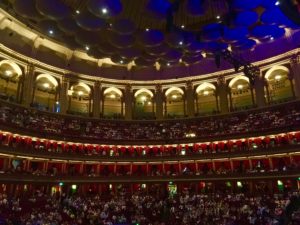
I was lucky enough to catch Daniel Barenboim with his West-Eastern Divan Orchestra, made up almost entirely by young Israeli and Palestinian players.
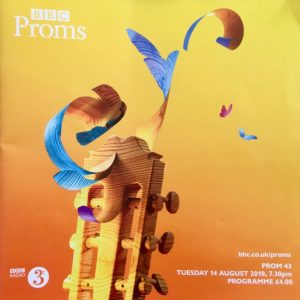
The programme included Tchaikovsky’s D major violin concerto, Scriabin’s Poem of Ecstasy and a new contemporary piece – Looking for Palestine – by David Robert Coleman. The soloist in the Tchaikovsky was a young Georgian-born violinist Lisa Batiashvili who had a beautiful fluency and tone. So, this month’s CD is her explorations of pieces by Prokofiev, which I bought at the show.
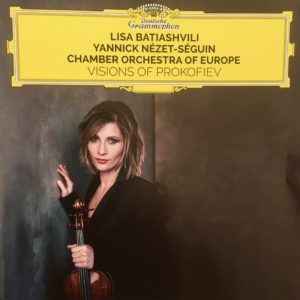
Two books this month, both based around Australia. The first is Peter Carey’s novel set in the 1950s where a couple embark on the Redex Trial – a brutal car race around the edge of Australia. It is full of lively characters with something happening every sentence; behind it all, though, is both the racism incipient in Australia, and the tensions and contradictions its past gives rise to. It ends up summing up the essence of contemporary Australia: ‘What may seem to be the signs of madness might be understood by someone familiar with alchemical literature as an encrypton whose function is to insist that our mother country is a foreign land whose language we have not yet earned the right to speak’.
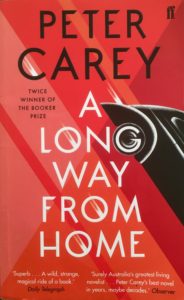
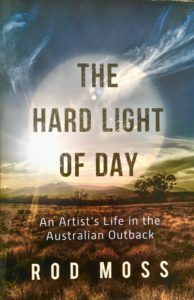
Somewhat as if to prove the point, the second book is the artist Rod Moss’ extraordinary account of living around and befriending Aboriginals in Alice Springs. It is a book that both romanticises and de-romanticises the aboriginals – their art, language and behavior. It kind of shows what they were, what they have become, and what they might still yet be. It is impossible to idealise their situation, really a direct result of having their land taken over by English colonialists who pretty much affected an ethnic genocide. The English declared it Terra Nullis – belonging to no-one!!! Present day aboriginals fight all the time and get drunk. Domestic quarrels routinely involve physical violence and hospitalization. Most Aboriginals are killed by other Aboriginals, and they exact a harsh ‘Old Testament’ revenge on groups and individuals who offend them. Others get condemned for associating with the wrong sort. If ‘the bone’ is shaken at them, they wither away and die. The women carry stones in their knickers to protect themselves, and the men weapons. Most die before seeing out their 50s. Yet, they know the site of every rock and its significance; they spot hidden animals with razor vision, and can kill the same with unerring precision. Yet, attuned as they are to the land and animals, children still torture the life out of creatures with a cruel fascination. Of course, the ‘Dreaming’ is all and everyone’s place in it. They can communicate across great distance by crackling paper and they announce their arrival by cracking a twig. As a character in the Carey novel asserts, people just don’t get it: these guys do not do linear vision, they see the whole 360 degrees as one!!